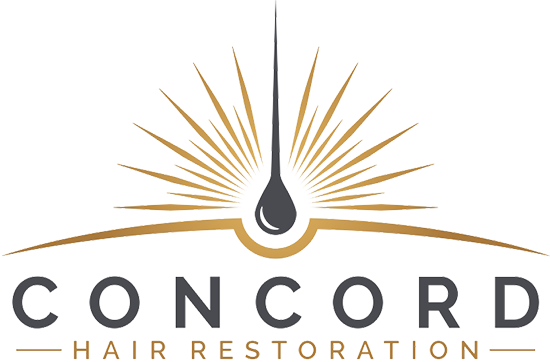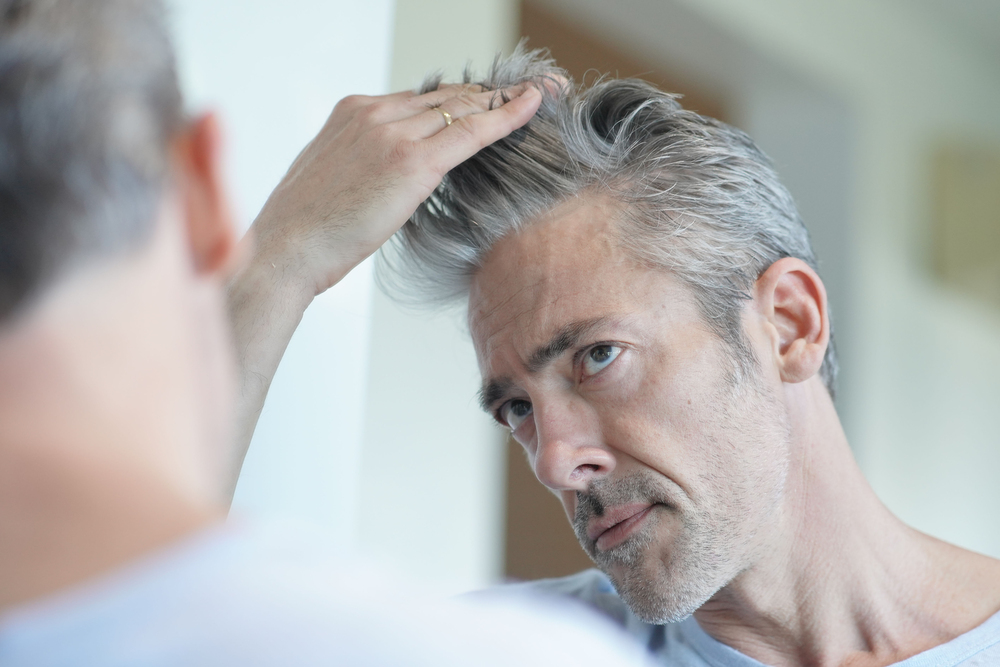Seasonal Hair Loss: Understanding the Why and Taking Charge of Your Hair Health
At Concord Hair Restoration, we understand that hair loss can be a stressful experience. Seasonal shedding is a common concern, but it doesn’t have to leave you feeling defeated. Here, we’ll break down the science behind seasonal hair loss, explore ways to manage it, and offer tips to keep your hair healthy year-round.
Understanding Seasonal Hair Loss
Have you ever noticed more hair in the shower drain or on your brush during fall or spring? You’re not alone! Seasonal hair loss is a natural phenomenon that affects many people. It’s important to remember that this shedding is usually temporary and follows a predictable pattern.
What Causes Seasonal Shifts in Hair Loss?
Several factors can contribute to seasonal hair loss:
- Changes in Weather and Temperature: The transition from summer’s warmth to fall’s cooler temperatures can affect your scalp health. Drier weather can lead to a dry scalp, while increased sweating in warmer months might trigger extra oil production. Both extremes can potentially cause shedding.
- Hormonal Fluctuations: Seasonal changes can influence hormone levels, particularly melatonin and cortisol. These hormones play a role in the hair growth cycle, and fluctuations can lead to temporary hair loss.
- Dietary Shifts: Our diets often change with the seasons. We might crave lighter fare in summer and gravitate towards heartier meals in winter. If essential nutrients are lacking during these transitions, it can impact hair health.
- Stress and Lifestyle Factors: Seasonal shifts often bring changes in routine, stress levels, and overall lifestyle. These factors can all take a toll on hair health.
Identifying Seasonal Hair Loss
It’s normal to lose 50-100 hairs a day, but if you notice a significant increase lasting for weeks, it could be seasonal hair loss. Here’s how to identify it:
- Track the Amount and Pattern: Keep an eye on how much hair you’re shedding and for how long. Does it seem to coincide with seasonal transitions?
- Observe the Duration: Seasonal hair loss usually follows a predictable timeline, lasting a few weeks to a couple of months. If the shedding persists longer, consider consulting a healthcare professional.
Seasonal Hair Loss: Science Weighs In
Research Studies and Findings: Studies support the experience of many – hair shedding often increases in the fall due to the natural hair growth cycle. This cycle is influenced by environmental factors like daylight and temperature.
Expert Opinions: Dermatologists and hair experts agree that while seasonal hair loss is common, it’s usually temporary and manageable with proper care.
Taking Charge of Your Hair Health
Here at Concord Hair Restoration, we believe healthy hair starts from within. By incorporating these tips into your routine, you can combat seasonal shedding and promote overall hair health:
Fuel Your Hair with a Balanced Diet
- Essential Nutrients: Include plenty of vitamins A, C, D, and E in your diet. These vitamins play a vital role in hair health. Iron, zinc, and omega-3 fatty acids are also important for healthy hair growth. Focus on incorporating fruits, vegetables, lean proteins, and healthy fats into your meals.
- Hydration is Key: Drinking plenty of water helps keep your scalp and hair hydrated, promoting overall hair health. Aim for eight glasses of water a day.
Pamper Your Hair with a Gentle Care Routine
- Washing and Conditioning: Use shampoos and conditioners formulated for your hair type. Avoid harsh products that can strip your scalp of natural oils. Wash your hair as needed, but avoid over-washing.
- Minimize Heat Styling and Harsh Treatments: Limit your use of heat styling tools like blow dryers and straighteners. Opt for air-drying whenever possible. Avoid frequent chemical treatments that can damage your hair.
- Explore Supplements: Consider incorporating biotin or other hair-supporting supplements like zinc and iron into your routine. However, it’s always best to consult your doctor before starting any new supplements.
Manage Stress for a Healthier You
- Stress Reduction Techniques: Practice mindfulness, meditation, or yoga to keep stress levels in check. Chronic stress can contribute to hair loss.
- Prioritize Mental Wellbeing: Maintaining good mental health is crucial for overall well-being. If you’re struggling with stress or anxiety, reach out to a therapist or counselor for support.
The Power of Scalp Massage and Natural Remedies
Scalp Massages: A Simple Yet Effective Tool
Regular scalp massages are a wonderful way to promote hair health. Here’s why:
- Improved Blood Circulation: Massaging your scalp stimulates blood flow to the hair follicles, delivering essential nutrients and oxygen.
- Relaxation and Stress Reduction: Scalp massages can be incredibly relaxing, helping to reduce stress, which can contribute to hair loss.
- Natural Exfoliation: Gentle massaging can help remove dead skin cells from your scalp, creating a healthier environment for hair growth.
To perform a scalp massage, use your fingertips to gently massage your scalp in circular motions. You can use a small amount of coconut oil or another nourishing oil for added benefit.
Harnessing the Power of Nature
In addition to scalp massages, several natural remedies can help address seasonal hair loss:
- Aloe Vera: Known for its soothing and hydrating properties, aloe vera can help calm an irritated scalp and promote hair growth. Apply aloe vera gel directly to your scalp and leave it on for 15-20 minutes before rinsing.
- Coconut Oil: Rich in fatty acids, coconut oil can penetrate the hair shaft and help reduce protein loss. Warm up a small amount of coconut oil and massage it into your scalp and hair. Leave it on for at least an hour or overnight before washing it out.
- Onion Juice: While the smell isn’t the most pleasant, onion juice contains sulfur, which can promote hair growth. Apply onion juice to your scalp, leave it on for 15-30 minutes, and then rinse thoroughly.
- Green Tea: Packed with antioxidants, green tea can help reduce inflammation and promote hair growth. Brew a strong cup of green tea, let it cool, and then apply it to your scalp. Leave it on for 30 minutes before rinsing.
Remember, consistency is key when using natural remedies. It may take several weeks to notice a difference.
When to Seek Professional Help
While seasonal hair loss is often temporary, persistent or severe hair loss may require medical attention. If you’re concerned about your hair loss, don’t hesitate to consult with a hair restoration specialist.
At Concord Hair Restoration, we specialize in hair transplant surgery in Los Angeles and other advanced hair restoration treatments. If you’re considering hair restoration options, we’d be happy to schedule a consultation to discuss your goals and explore the best treatment plan for you.
Don’t let seasonal hair loss get you down. By understanding the causes, implementing healthy habits, and exploring natural remedies, you can take control of your hair health and enjoy a fuller, more confident you.
Contact Concord Hair Restoration today to learn more about our hair restoration services and how we can help you achieve your hair goals.

